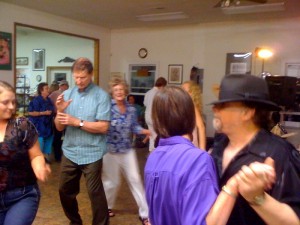I only want to say a couple of things about the debate (which I also did not watch, but have been listening to and reading highlights from all morning). So, like…Obama won, did he? Huh.
Romney, however anyone feels about him as candidate of choice, apparently had to do a lot of backpedaling and saying things that he’s going to have a lot of trouble with if elected. Particularly about women.
Never mind the “binders full of women” remark, which is the kind of unfortunate remark anyone might make under pressure.
Here’s the problem with Mitt Romney. As president, he will be the head of the GOP. The Republican Party has a number of things they put in its platform that are inimical to women’s progress toward full equity in this society. Romney, in order to follow through on some of his disclaimers last night, will have to turn around and tell his party that, no, he won’t support those things.
If the GOP retains its relative numbers in Congress—or gains control—just how likely does anyone think it will be that Romney will buck them? (I’m asking here, I don’t know. He does not strike me as the sort to go against his board of directors, though.)
While it may well be a minority of the GOP that actually believes some of the nonsense that’s been spewing from their collective gobbit of recent days, the fact is that this same minority has been wagging the dog for some time now. Romney will have to disavow them, fight them, and stand up and be forcefully reasonable in order to actually protect women’s rights. Something he apparently gave little actual substance to last night.
Yes, yes, I know, I should not pronounce on what I did not witness. Fair enough. But I’m not talking about last night per se, I’m talking about the last several months of campaigning. Romney started losing women according to polls and modified his campaign rhetoric to compensate. The problem is, the modifications run counter to the retrograde momentum of a great deal of the Republican Party, and that is where the problem lies.
The other part of this is the simple fact that no matter what he says, if he gets elected, everything will change. Obama pointed some of it up last night over the public land licensing for oil and coal. These are the kinds of details and difficulties you can’t always predict before you sit in that chair. Once actually in office, things Are Different. (That is why every president ever elected has disappointed some segment of his supporters.)
I’m delighted Obama got feisty. Romney may well want to win the election, but I wonder if he actually wants the job. He wants the job he thinks he’s running for, not the one he’ll actually have. Obama still wants to be president after four years.
But who knows? My point here is that the presidential election this time is far more about what the opposing Parties will do rather than the candidates themselves.
I’m cutting Obama a lot of slack on the economy, because frankly he told us it would take a long time to recover. Things are recovering. Naturally a lot of people are unhappy and not without reason—times are difficult—but he didn’t say it would be quick, which is usually what people want. (And people with jobs and some security will of course be more patient than those without.) Romney claims he knows how to create jobs. Neither man has that kind of control over what is ostensibly a free market. So as far as I’m concerned, it’s the rest of what Obama has been about that I’m concerned with.
And on that score, it’s a mixed bag. But just two things: Bush left this country with one of the worst international reputations it has had since Vietnam. Obama has been carefully rebuilding that. We simply cannot act unilaterally in the world today and Bush thought he could (“I don’t do nuance.” Indeed) and subsequently pissed everyone off pretty much across the board (except Israel).*
The second thing really is the women’s rights issue. What many people seem not to get is that this is not “just” about women, but about people—because if you can treat one segment of the population “special” and curtail their rights (pay, self-determination, personal dignity and security of person) then you can do it to any segment. The Right has more or less successfully made it appear that any time measures are taken to redress inequity for a given group that such measures are Special Treatment and “privileges.” Gotta hand it to them, they’ve been very, very good at this kind of 1984 newspeak. But it’s not so and until they stop letting the right wing of the party dictate their flight path I will vote against them. I don’t want to return us to a Leave It To Beaver world. No, I don’t think they actually can—social engineering is never so neat and precise—but the attempt to do so, even partially successful, will result in unintended consequences that will do damage to lives that should never have been so harmed. (Yes, some of these people I do see as the moral equivalent of the thugs who shot Malala Yousafzai. I very badly want these people out of office.)
So. One more debate and everyone will vote the way they were likely to in the first place. But I believe we should be clear on why we’re doing so.
Back to work, now. Thank you for your attention.
_________________________________________________
* It may seem like a fair charge that at some point we should stop beating up on what the Bush Administration did, and in principle I agree. We should move on. But let’s be honest—the right wing of the GOP has been carping and complaining about the Johnson Administration since Nixon took office. Not, perhaps, in name, but their entire direction has been more or less dictated by trying to undo what LBJ did. Well, in my view, W did one hell of a lot more damage, so forgive us if we still point that out from time to time.







